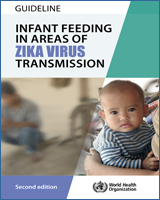| Parents report that they often do not know how best to feed their child | (9,10) | Moderate confidence | Two studies with minor concerns about coherence and methodological limitations. The data are rich, but there are serious concerns about adequacy (only two studies) and relevance (only from high-resource settings] |
| Parents report that feeding an infant who has difficulty feeding can be time-consuming and demanding | (10–13) | Moderate confidence | Five studies with minor or moderate concerns about coherence and methodological limitations: four studies are of high quality and the data from all studies are rich. Minor concerns about adequacy because there are five studies, and about relevance because these studies were with two exceptions (Brazil and Ghana) conducted in high-income settings (United Kingdom and Australia] |
| Parents experience frustration, stress and bonding concerns when feeding their child is problematic | (10–13) | Moderate confidence | Six studies with minor concerns about coherence, and minor or moderate methodological limitations. The data are rich. Minor concerns about adequacy with six studies and about relevance because studies were conducted across diverse socioeconomic settings |
| Parents feel that the information provided to them by health professionals is mostly inadequate; parents feel that the support provided to them by health professionals is mostly inadequate | (9–12,14) | Moderate confidence | Five studies with minor concerns about coherence and minor or moderate methodological limitations: the studies are high quality and the data are rich. Minor concerns about adequacy with five studies, and moderate concerns about relevance because these studies were mostly conducted in a particular socioeconomic context (Australia, Ghana, Portugal and the United Kingdom) |
| Parents report feeling they have to seek information themselves | (9,14) | Low confidence | Two studies with minor concerns about coherence; and minor or moderate methodological limitations: the studies are high quality and the data are rich. There are moderate concerns about adequacy and relevance because there are only two studies from resource-limited settings |
| Parents report a general lack of control | (9–12,14) | Moderate confidence | Four studies with minor concerns about coherence and minor or moderate methodological limitations: the studies are high quality and the data are rich. Moderate concerns about adequacy because there is only five studies but minor concerns about relevance because they are from across multiple settings (Australia, Brazil, Portugal and the United Kingdom) |
| Infant’s weight gain can be the overwhelming focus both for them and for health professionals | (9,10,13) | Moderate confidence | Three studies with minor concerns about coherence and methodological limitations: the studies are mainly high quality and the data are rich. Moderate concerns about adequacy because there are three studies and about relevance because these studies were conducted in a particular socioeconomic context (Australia and the United Kingdom) |
| Training can alleviate concerns with choking and positioning may avoid risk of vomiting | (10,12,13,15,16) | Moderate confidence | Five studies with minor concerns about coherence, and minor or moderate methodological limitations. The data are rich. Minor concerns about adequacy with seven studies and about relevance because studies were conducted across diverse socioeconomic settings |
| In situations of poverty, feeding problems are exacerbated by lack of resources to buy nutritious food, limited time and facilities for cooking special recipes and lack of access to rehabilitation and health services. Mothers may lack welfare financial assistance or support from the fathers | (12,13,15,16) | Moderate confidence | Four studies with minor concerns about coherence and minor or moderate methodological limitations: three studies are high quality and the data in all studies are rich. Moderate concerns about adequacy since there are only four studies. Relevance has only minor concern, with three studies from a low-resource socioeconomic context |
